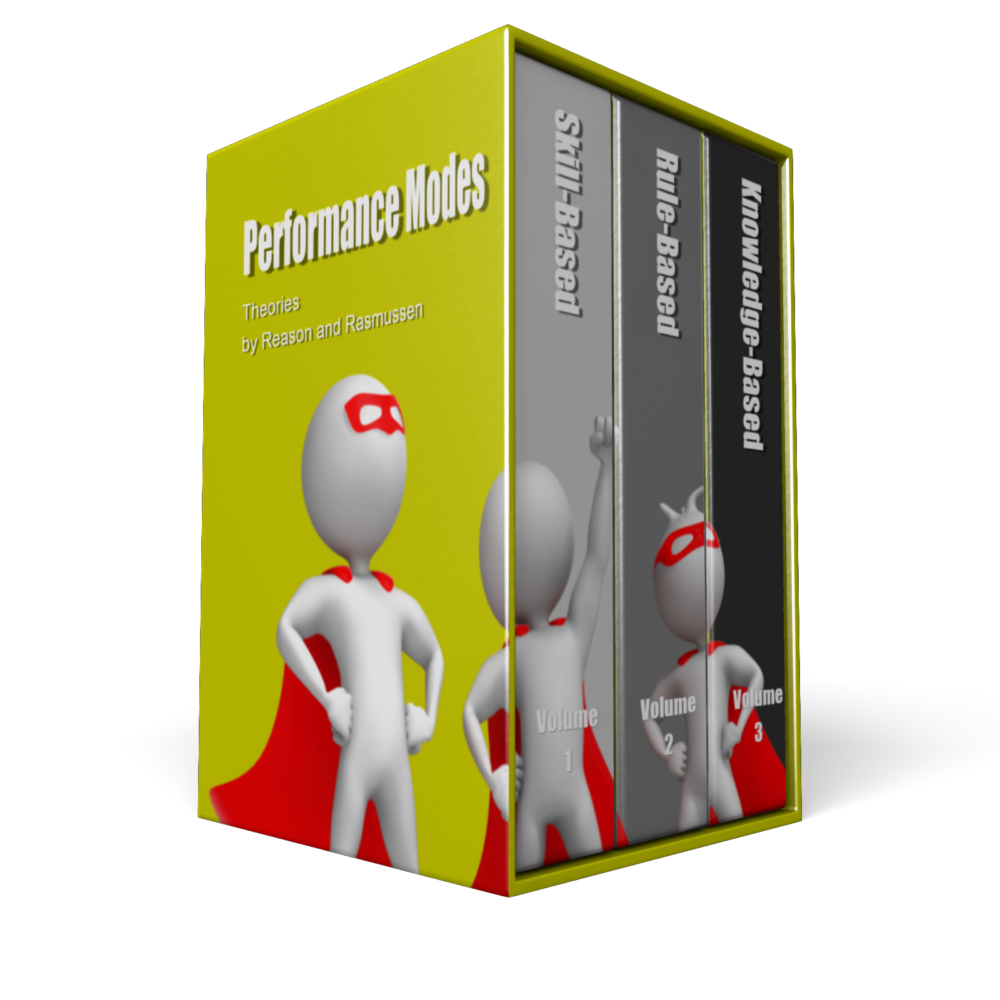Should I care about "Performance Modes?"
 What are "Performance Modes?" We call them Skill, Rule and Knowledge Based performance. These apply to the mode of operation we are in every moment of the day, depending on the situations we find ourselves in.
What are "Performance Modes?" We call them Skill, Rule and Knowledge Based performance. These apply to the mode of operation we are in every moment of the day, depending on the situations we find ourselves in.
- Skill-based – stored patterns of pre-programmed instructions
- Rule-based – familiar problems are addressed by application of stored rules
- Knowledge-based – novel situations in which actions must be planned, using conscious analytic processes and stored knowledge
James Reason classified errors based on Rasmussen’s 3 levels of performance:
- Skill-based errors – slips and lapses – when the action made is not what was intended
- Rule-based mistakes – actions that match intentions but do not achieve their intended outcome due to incorrect application of a rule or inadequacy of the plan.
- Knowledge-based mistakes – actions which are intended but do not achieve the intended outcome due to knowledge deficits.
[Source: "Human Performance" from Duke's Patient Safety]
Error precursor effect on Performance Modes:
Some error precursors are particularly powerful, depending on the performance mode of the individual performing the action. For instance;
Skill-based performance- strongly influenced by distractions, simultaneous tasks, and fatigue
Rule-based performance - strongly influenced by mindset confusing displays, and confusing procedures
Knowledge-based performance - strongly influenced by assumptions, first-time performance of the task, time pressure, lack of knowledge, and inexperience
[Source: "Human Error," by Brian Harkins, slide 25]
So what?
My thoughts: when someone is performing a procedure they can be in at least three modes at the same time... the mode for the environmental situation (Have I been here before?), the mode for the task they are performing (Have I done this before?) and their general familiarity for performing procedures (Is this my first time?). This is where I believe a lot of investigations that cite performance modes as a cause or contributor to a failure really aren't helping. I think the best use of knowing which performance mode the worker was in when an error happened is for creating a corrective action better aligned with the actual problem - i.e. a rule-based error should get a rule-based fix. We often start out in skill-based mode and the error happens when something changes and we did not recognize it and fail because of having the wrong mental model (knowledge based mode - you don't know what you don't know - fast switch from skill to knowledge). Addressing why the mode changed is an excellent way to develop a solution to prevent that shift in the future.
My bottom line on this is regarding teaching human performance fundamentals to workers. I have not seen worker "aha moments" that will prevent future failure, because we've taught them about performance modes in training. I think they should be used as an investigative tool for practitioners and not entirely necessary for workers to bother learning in any detail.
Terms: Skill, Rule and Knowledge
One fo my favorite Nuclear Power plant CEOs and I got into an awesome discussion/debate over lunch about why he thought workers should be in Knowledge Based mode and we should have them trained and supported to have the correct mental model when performing work. The names given to these modes have often confused people because they do not adequately represent the modes they describe....
I think the terms should be more like: Familiar, Instructional, and Unknowns (or Unfamiliar)... that may put a better light on what they actually represent!!!
What are your thoughts? I'm open to criticism and your candor on this post.
Extra Links to support the post:
Click here and check out the SRK Framework section
Understanding Human Behaviour and Error by David EmbreyPatient Safety and Quality Improvement (through Duke University)Wikipedia on "Human Reliability" (plenty of extra links here)Author's note: Sorry for no video link on this post's top left pic - there are no videos that I could find on the internet associated with performance modes. More content coming soon! Topic suggestions are always encouraged and accepted with open arms!